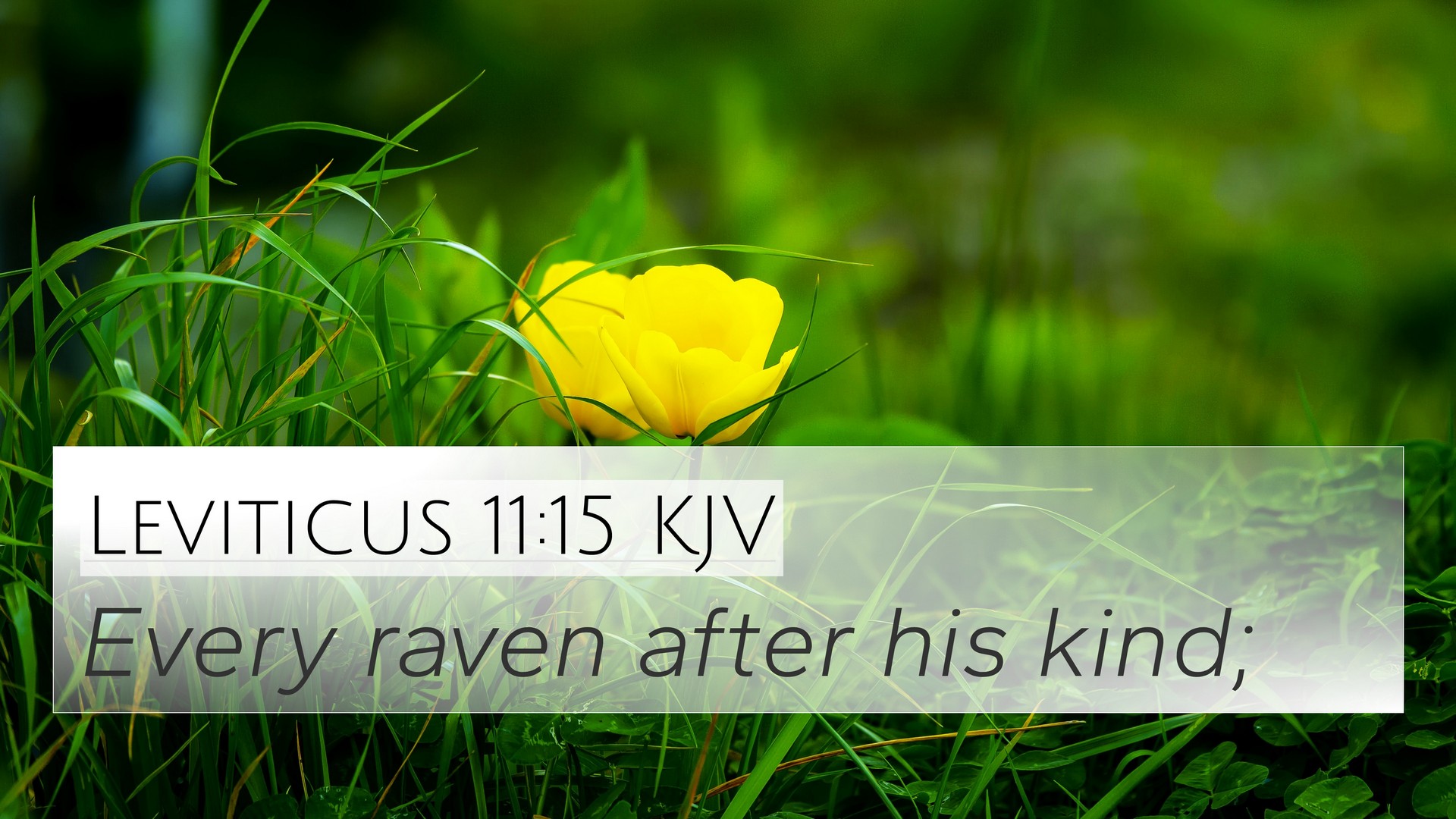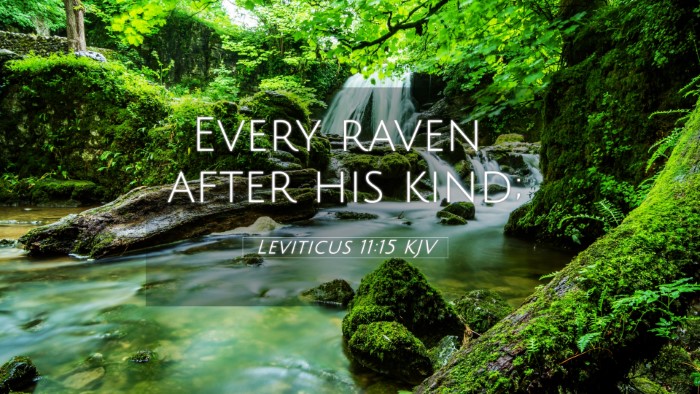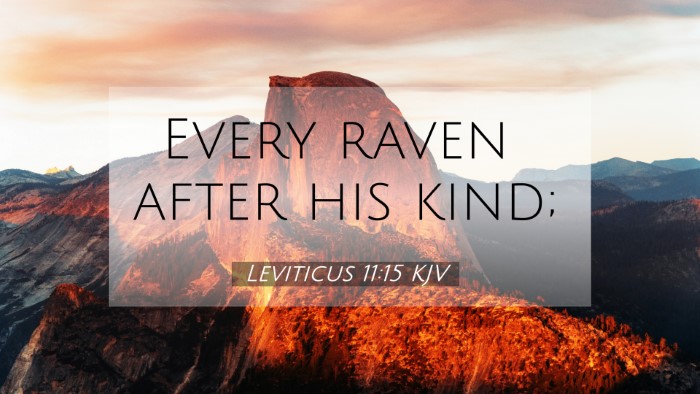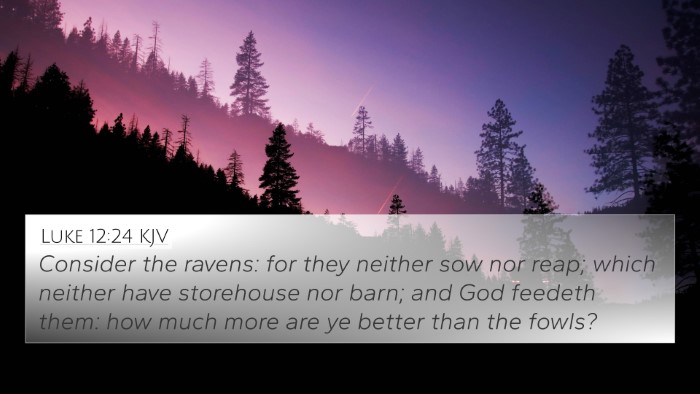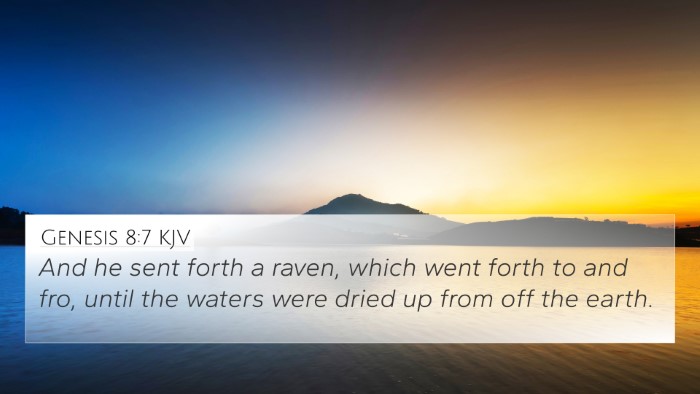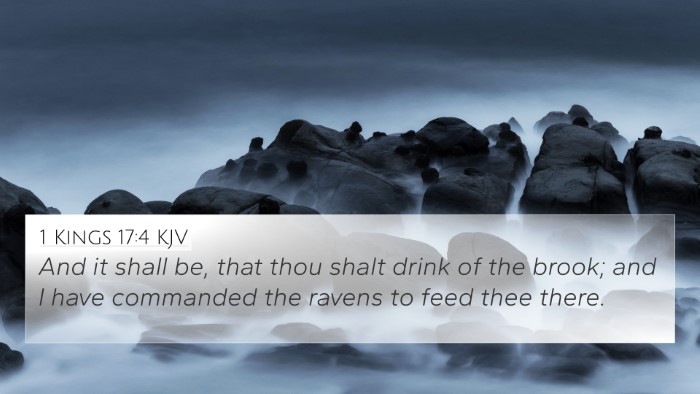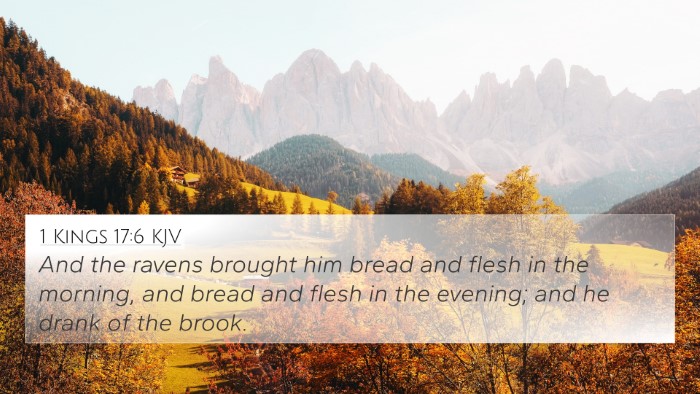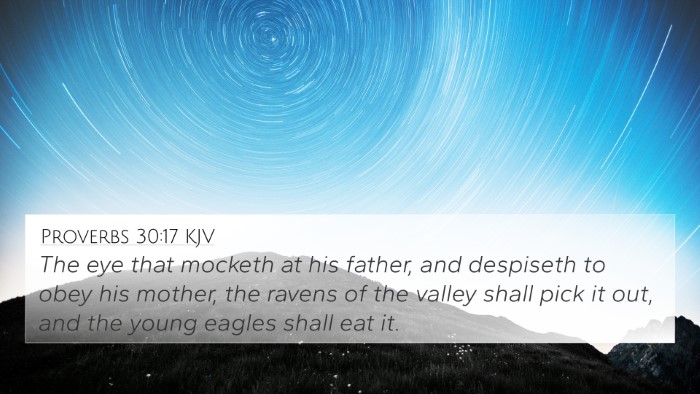Understanding Leviticus 11:15
Leviticus 11:15 states, "Every raven after his kind shall be unclean to you." This verse is part of the dietary laws given to the Israelites, specifically addressing which birds are considered clean and unclean for consumption. It lists the raven among the unclean birds.
Summary of Commentary Insights
- Matthew Henry: Henry emphasizes the importance of adhering to God's laws regarding clean and unclean animals. He notes that the raven, often associated with desolation and death, symbolizes neglect and spiritual barrenness.
- Albert Barnes: Barnes discusses the raven's characteristics, including its scavenger habits, reinforcing its classification as unclean. He suggests that this law illustrates God's desire for His people to be distinct and holy.
- Adam Clarke: Clarke provides additional context by explaining that the dietary restrictions serve to highlight the purity and holiness that God expects from His followers. He views the raven's inclusion in the list of unclean animals as a reminder of the need for spiritual discernment.
Connections Between Bible Verses
Leviticus 11:15 can be linked to various other scriptures that explore the concepts of purity, holiness, and dietary laws. Here are several cross-references that enhance understanding:
- Deuteronomy 14:14: Both verses address the classification of unclean birds.
- Isaiah 66:17: This verse discusses the consequences of consuming unclean animals, linking spiritual and dietary practices.
- 1 Kings 17:4: This passage illustrates the Lord providing for Elijah through ravens, indicating God's control over clean and unclean creatures.
- Matthew 15:11: In the New Testament, Jesus reaffirms the importance of inner cleanliness over external dietary restrictions.
- Acts 10:14-15: Peter's vision concerning clean and unclean animals expands on the theme of dietary laws.
- Mark 7:18-19: This verse echoes the teaching found in Matthew endorsing a spiritual rather than a strictly dietary purity.
- James 1:27: This verse emphasizes the importance of living a pure and undefiled life, connecting back to the principles in Leviticus.
Thematic Bible Verse Connections
Leviticus 11:15 represents a broader narrative of holiness throughout the Bible.
- Holiness: The theme of holiness is central not just in dietary laws but throughout the Pentateuch and the teachings of Jesus and the Apostles.
- Spiritual Discernment: The distinction between clean and unclean embodies a deeper spiritual lesson about distinguishing good from evil.
- God's Provision: Even in laws regarding unclean animals, the underlying message is about God's sovereign care for His people.
Tools for Bible Cross-Referencing
To further explore the connections found in Leviticus 11:15 and related verses, consider utilizing:
- Bible Concordance: A tool that helps find specific verses and their references.
- Bible Cross-Reference Guide: Guides that illustrate connections across different scriptural texts.
- Bible Reference Resources: Various resources can help in identifying thematic threads across both Old and New Testament.
- Cross-Reference Bible Study: Engaging in this methodology will aid in understanding the holistic message of the scriptures.
Cross-Referencing Bible Study Methods
Cross-referencing is an essential part of Bible study, providing insight into scriptural harmony. Here are some effective methods:
- Identifying Connections: Look for similar themes or words in different passages.
- Comparative Studies: Study parallel accounts in various Gospels or letters of Paul.
- Contextual Reading: Understand the context of each verse to grasp its intended meaning.
Conclusion
Leviticus 11:15 serves as a crucial text in understanding dietary practices within the context of holiness and discernment in the life of an Israelite. By exploring scriptural cross-references and engaging with public domain commentaries, one can gain a deeper appreciation for the connections and themes that run throughout the Bible.
